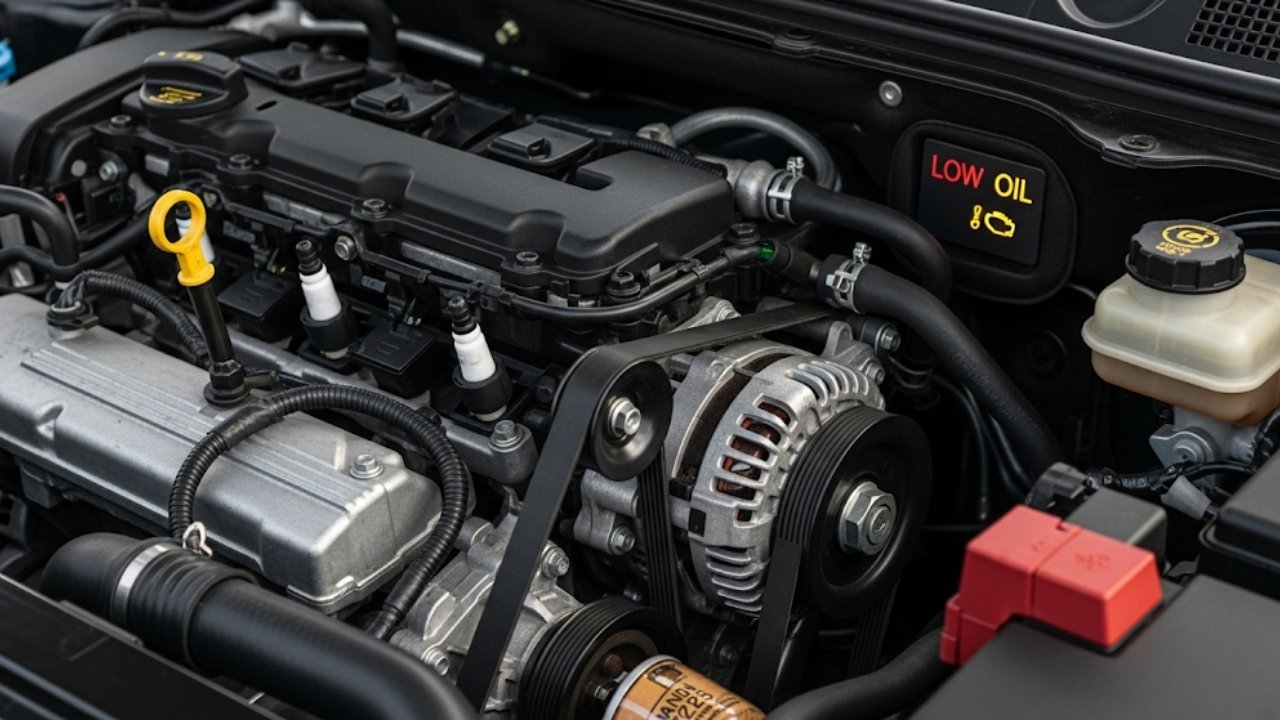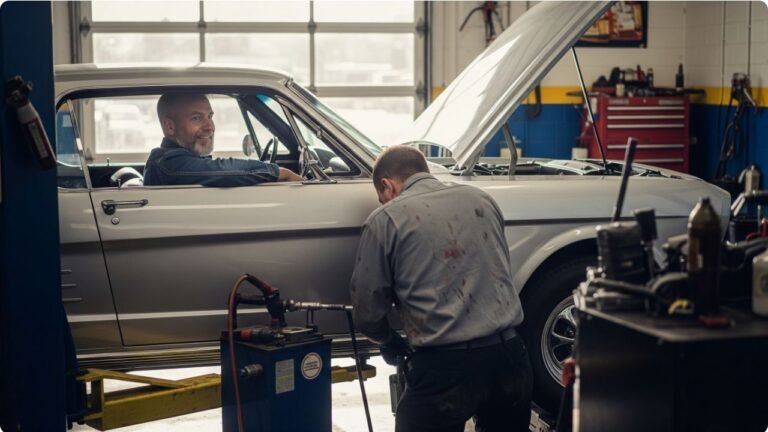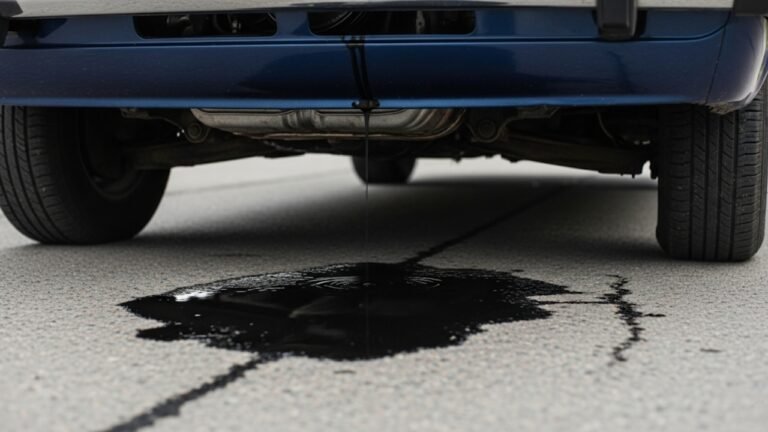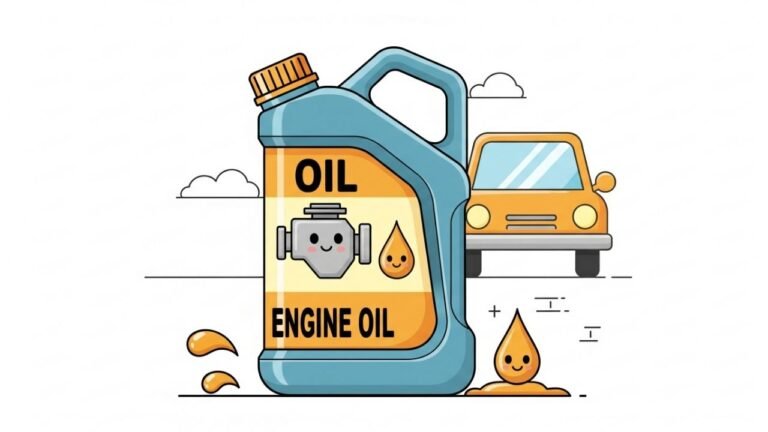Will Your Car Start Without Oil?

We’ve all been there—your car won’t start, and you pop the hood like a mechanic from a movie, hoping something will magically fix itself. Maybe you just had an oil change, or maybe you’ve been putting it off. Either way, a thought crosses your mind: will your car start without oil?
It’s not just a curious question. It’s a serious one. Driving or even trying to start a car without oil can turn into a financial nightmare. Your car might still start, but what happens next could be catastrophic. I’ve had a friend go through this exact situation, and the result? A dead engine and a repair bill that could’ve bought a secondhand car.
In this article, we’re breaking it down like you’re chatting with a buddy over tea or coffee. We’ll cover how engines work, what oil actually does, why running low or empty is dangerous, and whether the engine will still turn over when it’s dry. Buckle up—this could save you from one of the costliest mistakes in car ownership.
What Engine Oil Really Does – It’s Not Just Lubrication

Lubricates engine parts to reduce friction
Cools the engine by carrying away excess heat
Cleans by trapping dirt and metal particles
Prevents corrosion by coating metal parts
Maintains pressure by sealing gaps in engine components
When your car is missing oil, all these systems begin to break down. That squeaking, grinding sound? That’s metal kissing metal. And trust me, that’s never a good sign.
So, while your car might start without oil (more on that in a moment), it’s like trying to run a marathon with no water in your body. It won’t end well.
Can a Car Actually Start Without Oil?
Here’s the truth: Yes, your car can technically start without oil—but only for a short moment. It doesn’t need oil in the ignition system to turn over. The starter motor and battery are separate systems. So yes, it will crank. You’ll hear the familiar vroom, and maybe even drive a few feet.
But just because it can start doesn’t mean it should. You’re asking your engine to work without protection. Within seconds, you risk irreversible damage.
Why does it still start? Because the oil’s job kicks in after the engine starts turning. The pistons begin moving, and the oil pump starts circulating oil through the system. But if there’s no oil, nothing gets lubricated. This leads to extreme heat, friction, and—eventually—engine seizure.
What Happens If You Run an Engine Without Oil?
Let’s get visual here. Imagine sliding down a playground slide, but it’s made of sandpaper. That’s what your pistons are doing inside the engine if there’s no oil. Friction builds fast, and within a couple of minutes, the engine will overheat.
Here’s What You Can Expect:
First 10 seconds: Increased metal friction, louder engine noise
30 seconds in: Overheating, engine warning light turns on
60 seconds in: Piston rings begin to weld to cylinder walls
90 seconds and beyond: Engine seizes, shuts down, irreversible damage
Most modern cars will warn you before this happens—dash lights, oil pressure warnings, and even electronic cutoffs. But ignoring these signs or assuming your car will “be fine” just for a bit can cost you thousands.
Table: Engine Response Over Time Without Oil
| Time Without Oil | What Happens | Risk Level |
|---|---|---|
| 0–10 Seconds | Engine starts, parts grind | Medium |
| 10–30 Seconds | Parts heat up, oil light turns on | High |
| 30–60 Seconds | Engine begins to overheat, knocking sounds | Critical |
| 60–90 Seconds | Pistons and cylinders begin to seize | Severe |
| 90+ Seconds | Total engine failure | Catastrophic |
Real-Life Story: A Costly Mistake from a Friend
One of my closest friends, Imran, once thought he could stretch an oil change by another 500 km. He figured it was just a recommendation, not a rule. His car had already been leaking a little oil, and one morning, it just wouldn’t start smoothly.
He ignored the oil warning light, started the car anyway, and drove off. About five minutes into the drive, there was smoke—then silence. The engine seized. The final bill? Over $4,200 for a replacement engine.
What hurt more wasn’t the money—it was knowing it could’ve been avoided with a 10-minute oil check.
That’s why this isn’t just theory or scare tactics. Will your car start without oil? Sure. But should it? Absolutely not.
Signs Your Car Might Be Low or Out of Oil
Before it gets to the point where you’re asking if it can start without oil, your car usually gives you signs. Pay attention to these red flags:
Oil warning light on your dashboard
Burning smell from the engine
Knocking or ticking noises
Overheating even on a short drive
Visible oil leak under the car
Exhaust smoke turning bluish
If you catch these signs early, you may avoid disaster. Always check your oil levels monthly. Keep a bottle of the right oil in your trunk—just in case.
Bullet Points: Quick Oil Check Routine
Park on level ground
Let the engine cool
Pull the dipstick out
Wipe it clean, reinsert
Pull it out again and check oil level
Add oil if it’s below minimum
Taking five minutes to check oil is far better than weeks in the garage.
Dry Start vs No Oil – What’s the Difference?
Let’s clear up a common confusion. Some people say they had a “dry start,” and others ask if the engine had “no oil.” These aren’t quite the same.
Dry Start: Engine has oil but it hasn’t circulated yet
No Oil: There’s nothing to circulate in the first place
A dry start often happens after an oil change when the oil hasn’t yet flowed through all parts of the engine. It can cause mild wear but isn’t nearly as bad as running the engine completely dry.
Tip: After an oil change, wait 1–2 minutes after starting the engine. Let the oil circulate before you rev or drive. This reduces wear and prolongs engine life.
What Actually Gets Damaged When You Start a Car Without Oil?
The damage caused by running a car without oil isn’t just a light scratch on the surface—it’s more like breaking the bones inside the engine. The most affected parts include:
Pistons and Cylinder Walls
Crankshaft and Bearings
Camshaft and Valve Train
Oil Pump (ironically)
Connecting Rods
The pistons move up and down rapidly. Without oil, they grind against the cylinder walls, leading to deep scarring. The crankshaft, which converts piston motion into rotational motion, becomes misaligned. Once bearings wear out, metal pieces start flying—literally.
The damage escalates fast. In just one to two minutes, the engine will heat up beyond safe limits. When temperatures soar, parts expand, lose their shape, and weld together. The result? Engine seizure, total failure, and a very expensive lesson.
This kind of internal damage isn’t something you can spot from the outside. Many only realize it when their engine stops turning over—by then, it’s too late.
What to Do If You Accidentally Started Your Car With No Oil
Okay, so maybe you were in a rush and started the engine without realizing there was no oil. Mistakes happen. What you do next can mean the difference between a small repair and a full engine replacement.
Here’s What You Should Do Immediately:
Turn Off the Engine Right Away – Even 10 more seconds can do more damage.
Check Oil Level – Use the dipstick and see if the level is below minimum.
Add the Right Engine Oil – Don’t guess. Check your owner’s manual for the exact type.
Wait a Few Minutes – Let the oil settle and circulate before restarting.
Listen for Noises – Clicking or knocking sounds may mean damage was done.
Get It Inspected – Visit a mechanic, even if everything seems fine. Internal wear is sneaky.
Remember, if you started the engine and heard strange noises, smelled burning, or the oil light flashed, assume the worst and have a pro check it.
How to Prevent This from Ever Happening
Prevention is always better—and cheaper—than repair. Most oil-related issues come from lack of attention or neglect. Building a few simple habits can save you thousands over the lifetime of your vehicle.
Smart Habits to Protect Your Engine:
Check Oil Levels Monthly – Mark your calendar or set a reminder.
Change Oil on Time – Every 3,000 to 7,500 miles, depending on your car.
Use Quality Oil – Stick with the grade and brand your car manufacturer recommends.
Look for Leaks – Puddles under your car? Take them seriously.
Don’t Ignore Warning Lights – They’re not just suggestions—they’re urgent messages.
Know Your Dipstick – Learn what low, full, and burnt oil look like.
Being proactive gives you power. You don’t need to be a car expert—just attentive.
Frequently Asked Questions (FAQs)
1. Can I drive my car for a few minutes without oil?
No. Even a minute of driving without oil can cause irreversible engine damage. Oil is critical from the moment you turn the key.
2. Why did my oil light come on after I started my car?
That’s a warning that oil pressure is low or there’s no oil in the system. Stop driving immediately and check oil levels.
3. How long can an engine last without oil?
In most cases, an engine will completely seize within 30 to 90 seconds without oil. You may never even get out of your driveway.
4. Will putting oil in a seized engine fix it?
Unfortunately, no. Once the metal components weld or break, fresh oil won’t help. The engine usually needs a full rebuild or replacement.
5. Is it okay to idle a car with no oil just to test something?
Absolutely not. Even idling creates enough friction and heat to damage engine parts in the absence of oil.
6. What does engine seizure sound like?
You may hear clunking, knocking, or grinding, followed by silence. That’s your engine giving up.
7. Can low oil cause starting issues even if some oil is present?
Yes. If oil pressure drops too low, it can prevent proper ignition or cause the engine to stall immediately after starting.
8. How much oil does a car usually need to run safely?
Most cars need between 4 to 6 quarts (or liters). Check your owner’s manual to confirm.
Final Thoughts: Know Before You Go
Let’s go back to the big question: Will your car start without oil? Technically, yes. But that’s not the question that really matters.
The better question is: What happens after it starts?
And the answer is: Nothing good.
Starting a car without oil is like running a marathon in flip-flops with no water—it might begin okay, but the ending will be ugly. The cost, the stress, and the engine loss just aren’t worth it.
Treat your engine oil like your health. Keep tabs on it, don’t ignore the signs, and don’t put off check-ups. Your car takes care of you every day. It’s only fair you return the favor.






